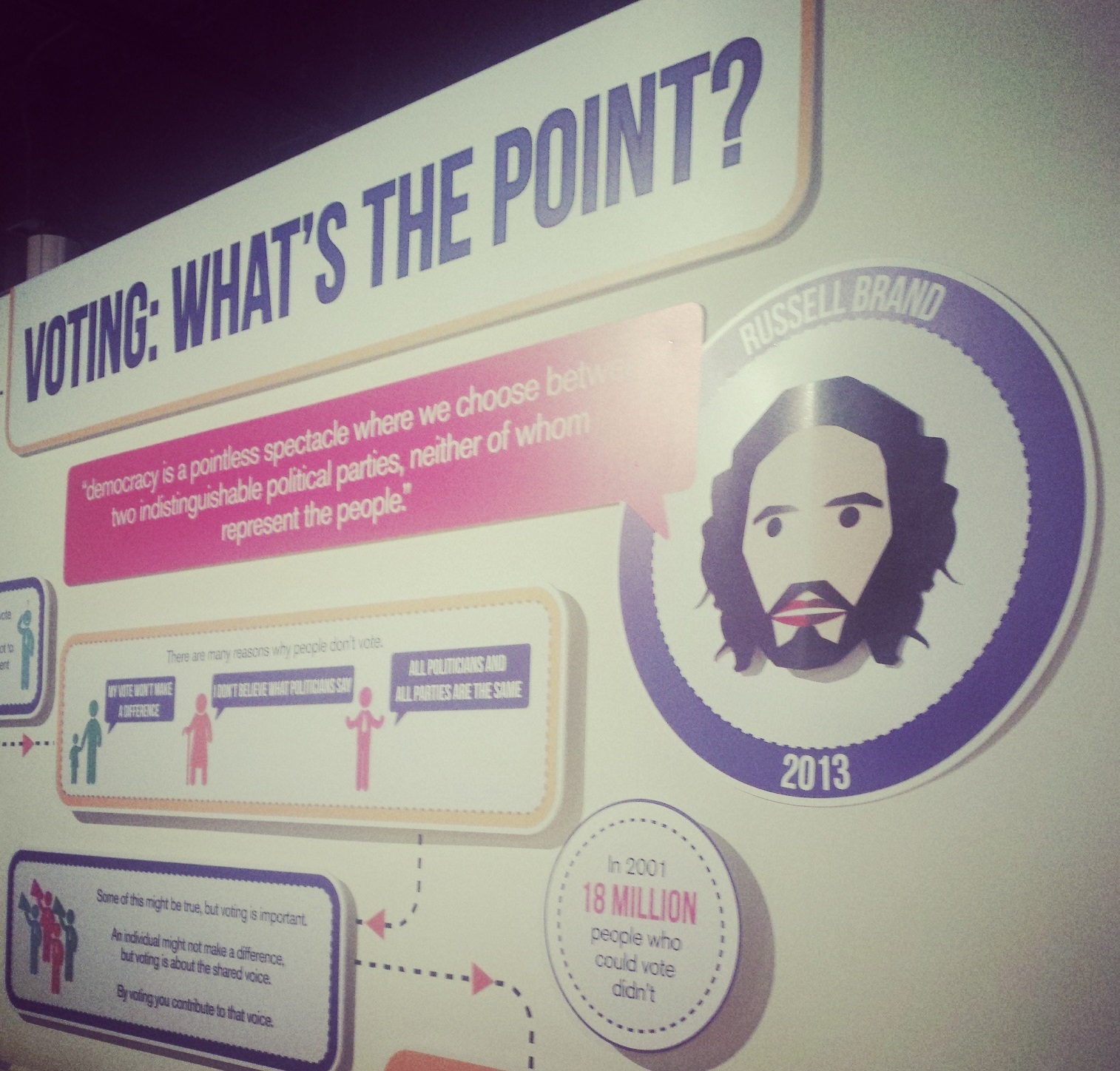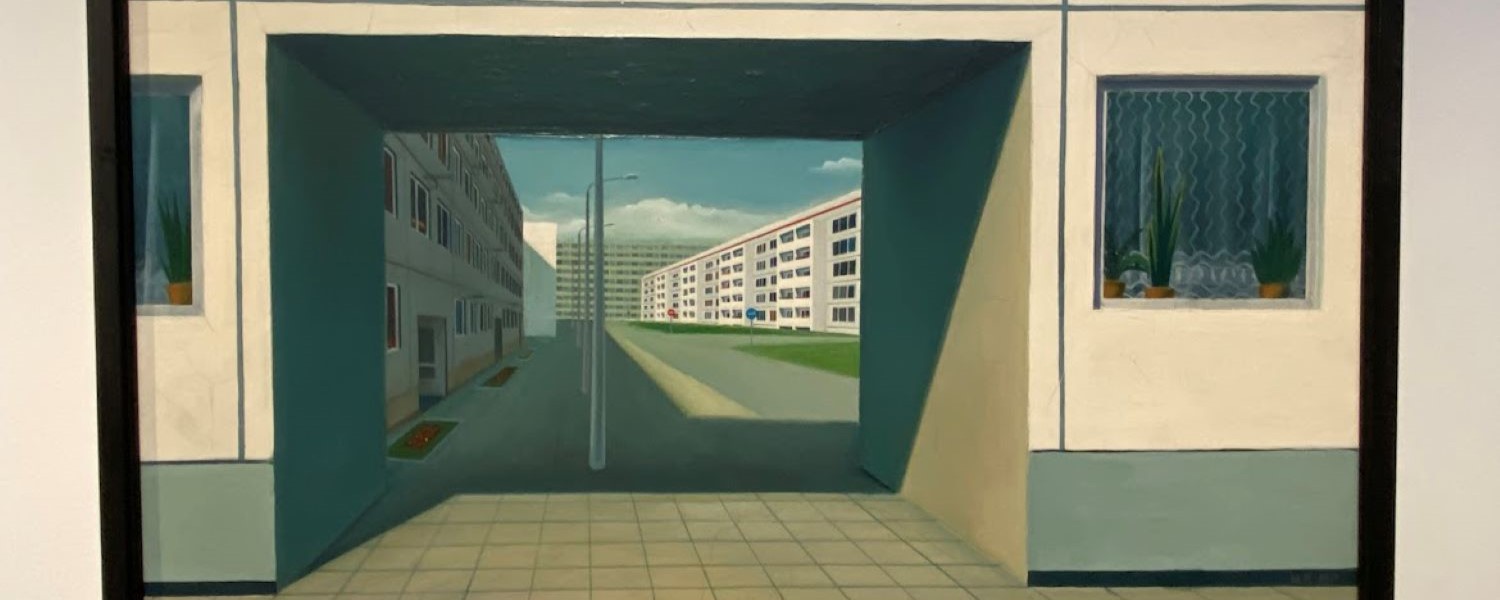By Rebecca Riley
A week ago I was invited to a private view of “Election! Britain Votes” – a bold and experimental new exhibition developed by the People’s History Museum in Manchester as we prepare to go to the polling station. Having read the recent review by New Statesman, where the exhibition is described as “candid and sincere… far removed from the complacency we often get when museums try and do politics”, I was looking forward to visiting one of my favourite museums.
As a big supporter of democracy and people having the right to actively participate in the decisions which rule our lives, I couldn’t help but wonder at the number of attendees (it was a ‘good turn-out’) and whether the innovation and impact of the exhibition will ever reach the people it needs to, the disaffected voters.
Opened by Jon Snow, he made some interesting opening statements – his enthusiasm for the exhibition was obvious but he highlighted some key issues we face as a democracy:
- “It’s time to start running the country in a different way… we are a country of London” – a tip of the hat to the devolution options now being discussed, within cities and across devolved nations.
- It “cannot be right, that there are not more women in parliament” – pointing out a thought-provoking statistic from the exhibition, that there haven’t been enough women in parliament so far, to fill the whole House once!
The exhibition is pitched as a place to debate, discuss and reflect on the importance of our vote in 2015. Through the most amazing and immersive infographics I have seen (created by @AJGardnerDesign) the exhibition takes you through the history of voting; the mechanics of it and what goes on behind the scenes.
It lays down the gauntlet to Russell Brand by answering the question “voting: what’s the point?” and finishes with a terminal which allows you to register online to vote. The visitor is challenged not to, having witnessed the struggle others went through to enable you to have the right!
Having visited, the prevailing memory of the exhibition is summed up in the title of this blog – we take for granted the privileges we have as a result of living in a democracy. Taking it for granted means we risk losing its benefits:
- Reducing inequality by preventing the capture of power by elite groups – power is spread wider and in a more representative way;
- Representing diverse opinions and needs of individuals across government, and ensuring government money helps those in need;
- Having greater control and power over our own everyday lives;
- Countering extremism from either direction; and
- Maintaining local decision making and accountability.
As Jon Snow said, the exhibition shows us “how we got to where we are… but we don’t know where we will be”. But one thing was very obvious from the voter turnout figures presented – fewer and fewer people are exercising their right to shape what we will be, as a country and community. The voting population is disillusioned and feels excluded from the decision making; and political parties, individual politicians and the government should take action to re-engage the electorate.
If you are wondering why you should vote, I would highly recommend a visit!
Further reading
We have previously blogged on voting and democracy:
Other resources which you may find interesting (some may only be available to Idox Information Service members):
A programme for effective government: what the party manifestos must address in 2015
Civic participation and political trust: the impact of compulsory voting
Elections: turnout (House of Commons Library standard note SN/SG/1467)
Voter engagement in the UK: fourth report of session 2014/15
Share
Related Posts
Tackling geographical inequalities is critical for ensuring that all parts of the country have the potential to prosper. When the UK was a member of the European Union, it was entitled to a share of funding from the EU’s structural ....
In recent years, there has been an increasing focus on ensuring people with ‘lived experience’ are involved in co-producing research and policy-making at practical, local level. However, there has been little discussion around what the people with lived experience themselves ....
By Robert Kelk and Chris Drake A new start for an old challenge? The recent appointment of Marc Lemaître as the European Commission’s director general for research and innovation (R&I) has returned Europe’s R&I gap to the spotlight. Previously head ....


